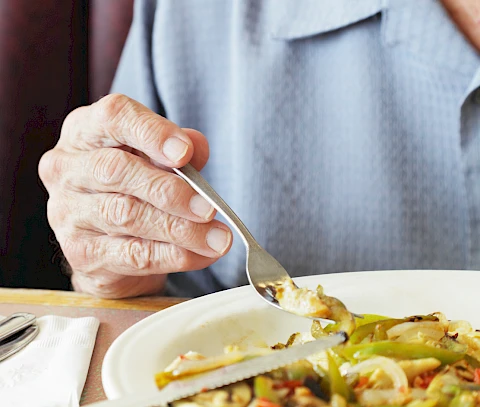
Seniors are more vulnerable to foodborne illnesses due to weakened immune systems and chronic medical conditions. Understanding food safety risks and implementing best practices can help caregivers provide them with safe and nutritious meals. Explore key areas of food safety, including proper food storage, safe cooking temperatures, and recognizing signs of foodborne illness with Senior Helpers Boston North. Learn some guidelines for safe food handling and preparation to ensure seniors remain healthy and happy.
Food Safety Risks for Seniors
Seniors face a higher risk of foodborne illnesses because their immune systems are less robust than they once were. Age-related changes in the digestive system, such as reduced stomach acid production, make it easier for harmful bacteria to cause infections. Additionally, seniors may have underlying health conditions that further increase their susceptibility.
Common foodborne pathogens such as Salmonella, E. coli, and Listeria can have severe consequences for seniors. These pathogens can cause symptoms such as diarrhea, vomiting, and fever, which can lead to dehydration and hospitalization if not addressed promptly.
Proper Food Storage
Storing food correctly is crucial in preventing foodborne illnesses. Keep your refrigerator below 40°F and your freezer at 0°F or lower. Store perishable foods, such as meat and dairy, in the coldest part of the fridge. Use airtight containers to prevent cross-contamination.
Organizing food to prevent cross-contamination is essential. Keep raw meat separate from ready-to-eat items such as salads and fruits. This reduces the risk of harmful bacteria spreading from one food to another. Always check expiration dates. Checking the shelf life helps prevent the consumption of spoiled or unsafe food.
Safe Cooking Temperatures
Cooking food to the proper internal temperature ensures harmful bacteria are killed. Here are recommended internal temperatures for common foods:
- Poultry: 165°F
- Ground meat: 160°F
- Steaks and roasts: 145°F
- Fish: 145°F
Use a food thermometer to check these temperatures accurately. Insert the thermometer into the thickest part of the food and wait for a stable reading. Avoid eating undercooked or raw foods, especially meats and eggs, as they can harbor dangerous pathogens.
Recognizing Signs of Foodborne Illness in Seniors
Be vigilant about potential signs of foodborne illness in seniors. Common symptoms include nausea, vomiting, diarrhea, abdominal pain, and fever. If any of these symptoms appear, seek medical attention immediately. Seniors are susceptible to complications from foodborne illnesses, which can worsen quickly.
Preventative measures such as regular handwashing, proper food storage, and safe cooking practices minimize the risk of illness. Caregivers should be trained to recognize these symptoms and respond promptly to ensure the safety and well-being of seniors in their care.
Guidelines for Safe Food Handling and Preparation
Good hygiene practices are the foundation of safe food handling. Always wash your hands with soap and water before preparing food and eating. This simple step greatly reduces the spread of germs.
When preparing and serving meals, encourage the use of separate cutting boards for raw and cooked foods. Clean cutting boards, knives, and surfaces thoroughly after each use. Keeping kitchen surfaces and utensils clean and sanitized is crucial. Regularly wipe countertops with disinfectant and wash utensils with hot, soapy water to prevent harmful bacteria from lingering.
Refrigerate or freeze perishable foods within two hours of cooking or purchasing. When reheating leftovers, ensure they reach an internal temperature of 165°F to kill any bacteria that may have grown during storage.
Contact Senior Helpers for Support With Food Safety
Food safety is a crucial aspect of senior care. With proper storage, cooking, and handling practices, caregivers can protect seniors from dangerous foodborne illnesses. Prioritizing food safety ensures the health of seniors and supports their quality of life. Contact us at Senior Helpers Boston North for professional caregiving services. We proudly serve the North Shore, Merrimack Valley, Cape Ann, Peabody, Melrose, and surrounding areas.